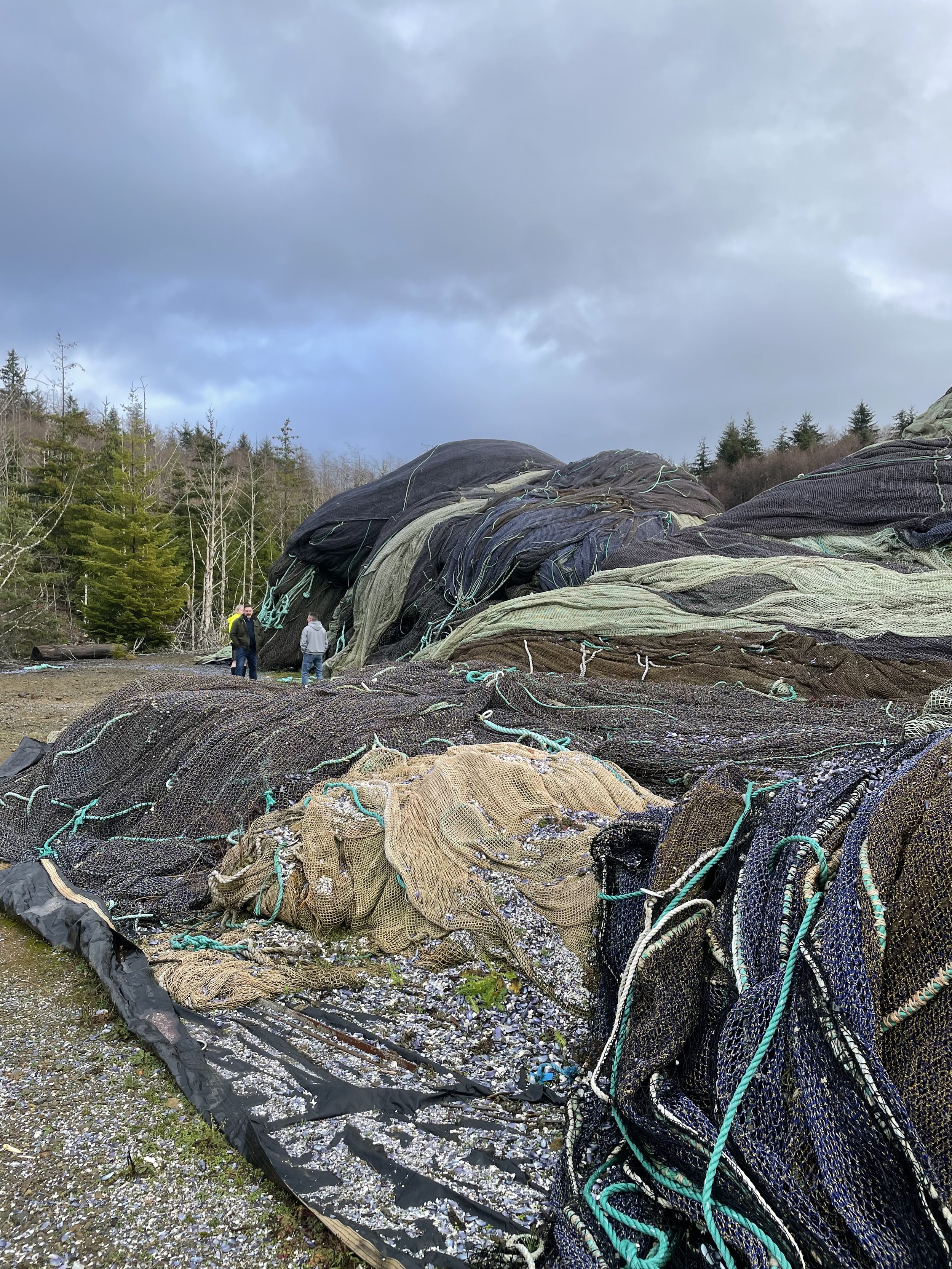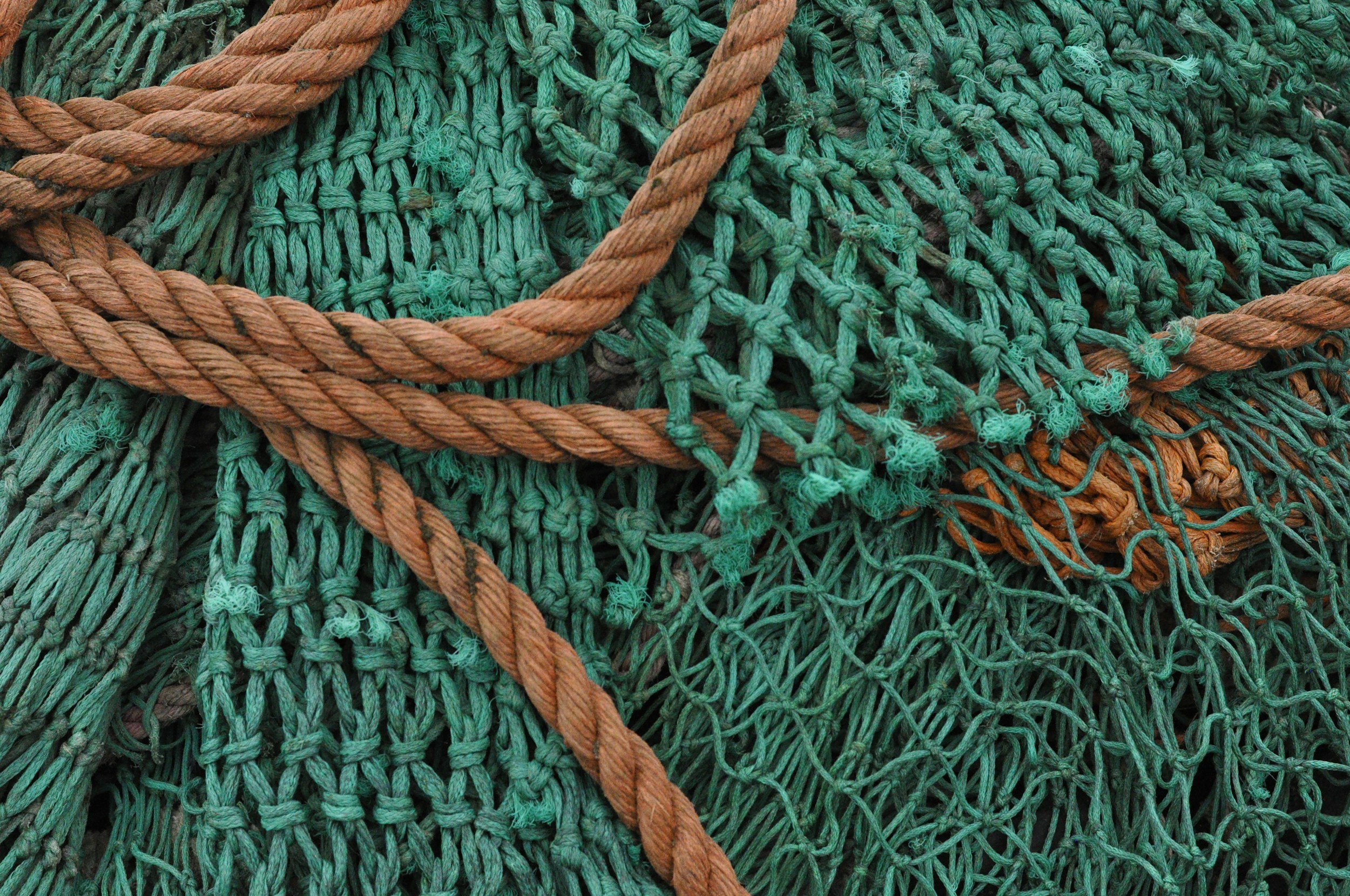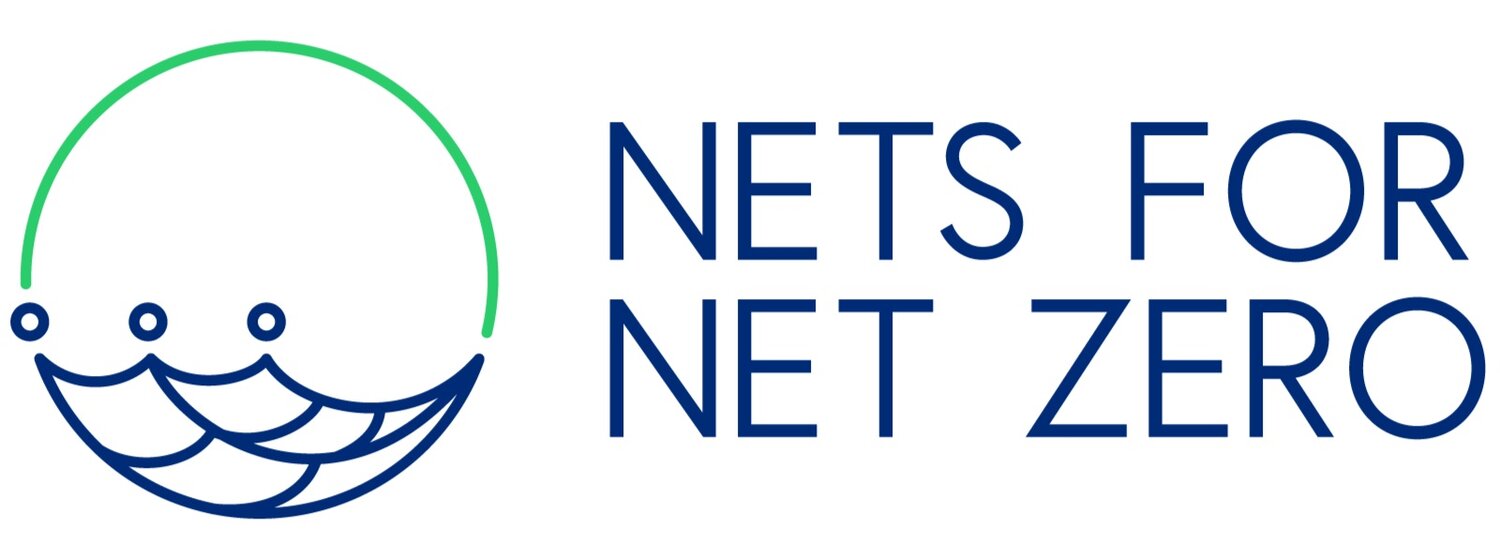
Open Innovation
From Waste to Circular Raw Material for Canadian Manufacturers
Apply by Friday, May 23rd 2025, 11:59 PM EST.
Get ready to take action!
This 9-month program unites manufacturers, researchers, and communities across Nova Scotia and Eastern Canada to transform discarded fishing gear into innovative products made from recycled HDPE. Known for its strength and versatility, HDPE is the key to building smarter, more sustainable solutions—right here at home. We're tackling ocean waste head-on, fueling local innovation, and powering a circular economy.
Who can apply?
We're calling on manufacturers across Eastern Canada who are ready to innovate, collaborate, and lead the way in sustainable product development. If you're exploring new materials, interested in prototyping with recycled plastics, or committed to reducing your environmental footprint—this program is for you.
If you are from a region outside eastern Canada, please send us a message at hello@netsfornetzero.com so we can determine your eligibility for this program or your fit for future programs.
We’re specifically looking for companies ready to prototype and test new products using recycled HDPE made from Abandoned, Lost, and Discarded Fishing Gear (ALDFG). Whether you’re in marine, construction, packaging, or consumer goods, if you see potential in turning waste into value—we want to work with you to make it happen.
Let’s build the future, one product at a time.
Our Canadian circular system for recycled HDPE fishing gear avoids impact on climate change by 92%, on water scarcity by 95% and on ecosystem quality by 87%, in comparison to virgin plastics produced in China.
For every tonne recycled, we avoid 1.96 tonnes of crude oil.
Program Information
-
Applications launch May 1st 2025.
Deadline to apply is Monday, May 23rd 2025, 11:59 PM EST.
Public announcement of the selected cohort on Ocean Day, June 8th 2025.
-
Public announcement of program participants on Ocean Day, June 8th 2025.
Phase 1: Program Kick-Off (Month 1) June 2025
Objective: Launch the program and establish initial partnerships.
Virtual Kick-Off Event
Stakeholder Identification & Networking
Program Orientation & Training sessions on HDPE recycling processes, circular economy principles, and the environmental benefits of using recycled materials in manufacturing.
Discuss product development ideas and prototyping strategy
Phase 2: Ideation & Concept Development (Month 2-4) July to Sept 2025
Objective: Generate product ideas and explore technical feasibility for using recycled HDPE in new applications.
Define the challenges for manufacturers and host collaborative ideation workshops with designers, manufacturers, and technical experts.
Focus on the properties of HDPE from fishing gear, including its strength, weather resistance, and recyclability, and how these can be leveraged in product development.
Evaluate the technical feasibility of turning HDPE from fishing gear into usable materials for the proposed products. This could include:
Material testing to ensure the HDPE’s integrity.
Research into any additional processing or additive requirements for product performance.
Phase 3: Prototyping & Product Development (Month 5-7) Oct to Dec 2025
Objective: Develop and test prototypes using recycled HDPE from fishing gear.
Select the top product concepts for prototype development based on feasibility, environmental impact, and market potential.
Produce initial prototypes made from recycled HDPE, considering how to maintain high-quality standards while using the recycled material.
Collaborate with the polymer processing experts to ensure that the HDPE is processed correctly (cleaning, shredding, granulation, etc.) and meets the necessary quality for product manufacturing.
Conduct pilot runs to test the scalability of producing the prototypes and gather data on production efficiency and material properties.
Evaluate the prototypes under real-world conditions to assess their durability, usability, and performance. This could include:
Environmental tests to check the resilience of the product against weather conditions (UV exposure, saltwater, etc.).
Consumer feedback or focus groups to assess the appeal and functionality of the products.
Phase 4: Commercialization & Scaling Strategy (Month 8-9) Jan-Feb 2026
Objective: Finalize commercialization plans and prepare for large-scale production.
Based on the feedback from testing and consumer trials, refine the prototypes for final production.
Focus on cost optimization and ensuring that the final product is competitive in the market, both in terms of pricing and environmental benefits.
Market Readiness & Business Planning:
Assist participating manufacturers in creating a commercialization strategy, including go-to-market plans, pricing strategies, and identifying target markets.
Pitch Event & Investor Engagement:
Organize a final pitch event where manufacturers present their prototypes, commercialization plans, and business models to potential investors, partners, and government stakeholders.
Facilitate networking to help secure funding or partnerships that can support the scaling of the new products.
Assist manufacturers in identifying necessary certifications for their recycled products (e.g., environmental certifications, sustainability claims) to ensure compliance with relevant regulations.
Program ends March 31st 2026.
-
Key Components of the Program:
Collaboration Platform: A digital space where participants can share ideas, ask for feedback, and collaborate with other stakeholders (e.g., manufacturers, researchers, NGOs).
Technical Support: Access to technical experts in material science, HDPE processing, and circular economy practices.
Funding & Resources: Provide grants, seed funding, or in-kind resources to support prototype development, as well as access to recycling infrastructure and testing facilities.
Consumer & Market Insights: Market research to understand the demand for recycled HDPE products and guide manufacturers in product development.
Expected Outcomes:
New Products from Recycled HDPE: At least one commercial-ready product made from recycled HDPE sourced from fishing gear, such as construction materials, outdoor equipment, or packaging solutions.
Environmental Impact: Significant quantities of fishing gear plastics diverted from landfills and oceans, contributing to a reduction in ocean plastic waste.
Economic Growth: New business opportunities for local manufacturers, as well as the creation of a sustainable, circular manufacturing ecosystem in Nova Scotia and Eastern Canada.
Sustainability Leadership: The program will establish the region as a leader in the use of recycled plastics, particularly in the fishing industry, and promote Nova Scotia and Eastern Canada as a hub for sustainable innovation.
-
The total cost of the 9 month program is 5000$ CAD (valued at 30 000$ CAD). This includes:
Monthly online seminars in circular product development and innovation management.
15 hours of one on one coaching and assistance in developing your circular project.
Testing mechanical properties and product performance at Polytechnique Montréal for up to 3 prototypes.
100kg of recycled HDPE for prototyping.
Impact assessment for one final product.
-
Deadline to apply is Monday, May 19th 2025, 11:59 PM EST.
-
Send us an email at hello@netsfornetzero.com and let us know how we can help!

It all begins with an idea. What you create today could help shape a cleaner, stronger future for our coasts, our communities, and our industries. Don’t wait for change—be the one to build it.
Thanks to our Project Partners









